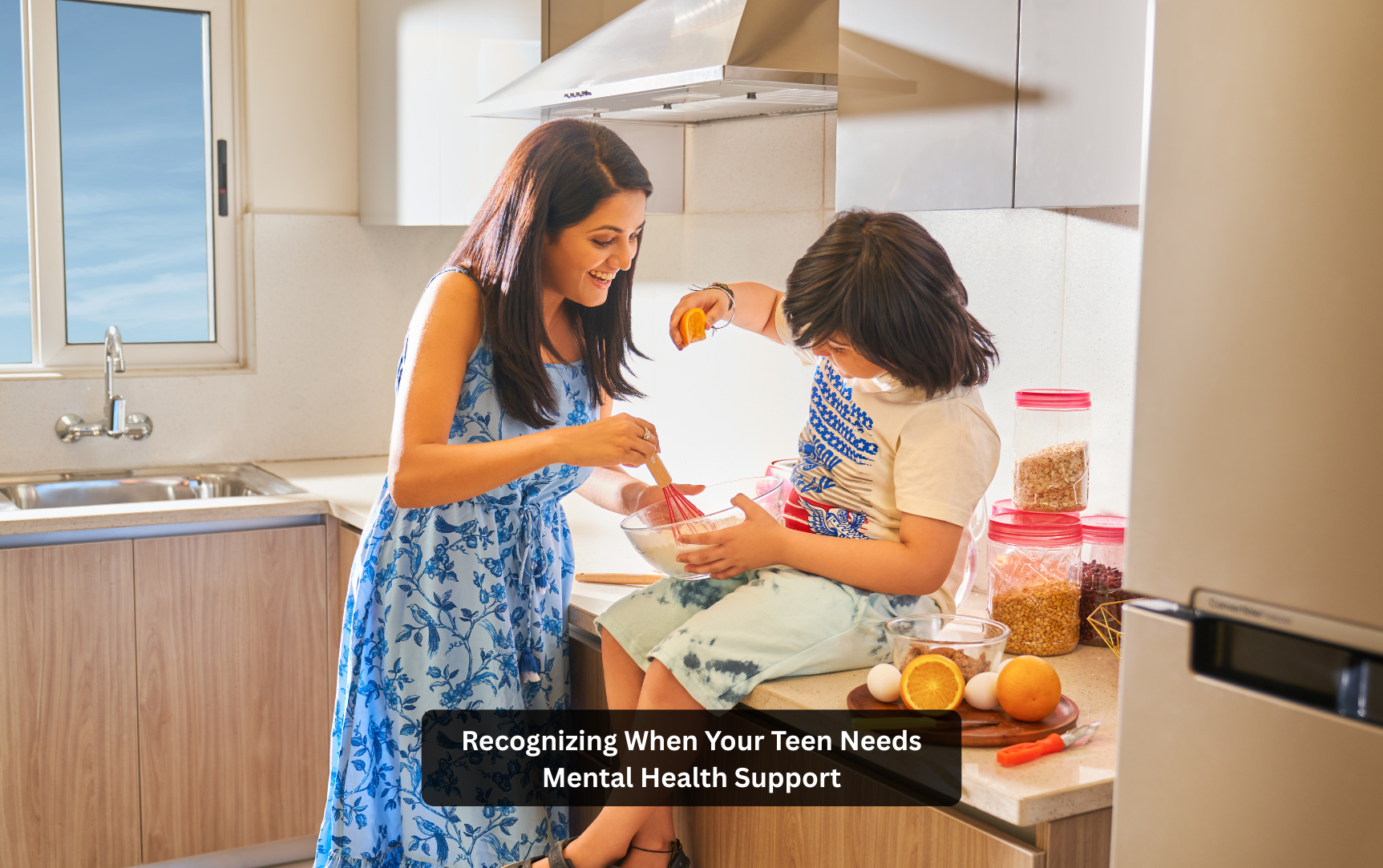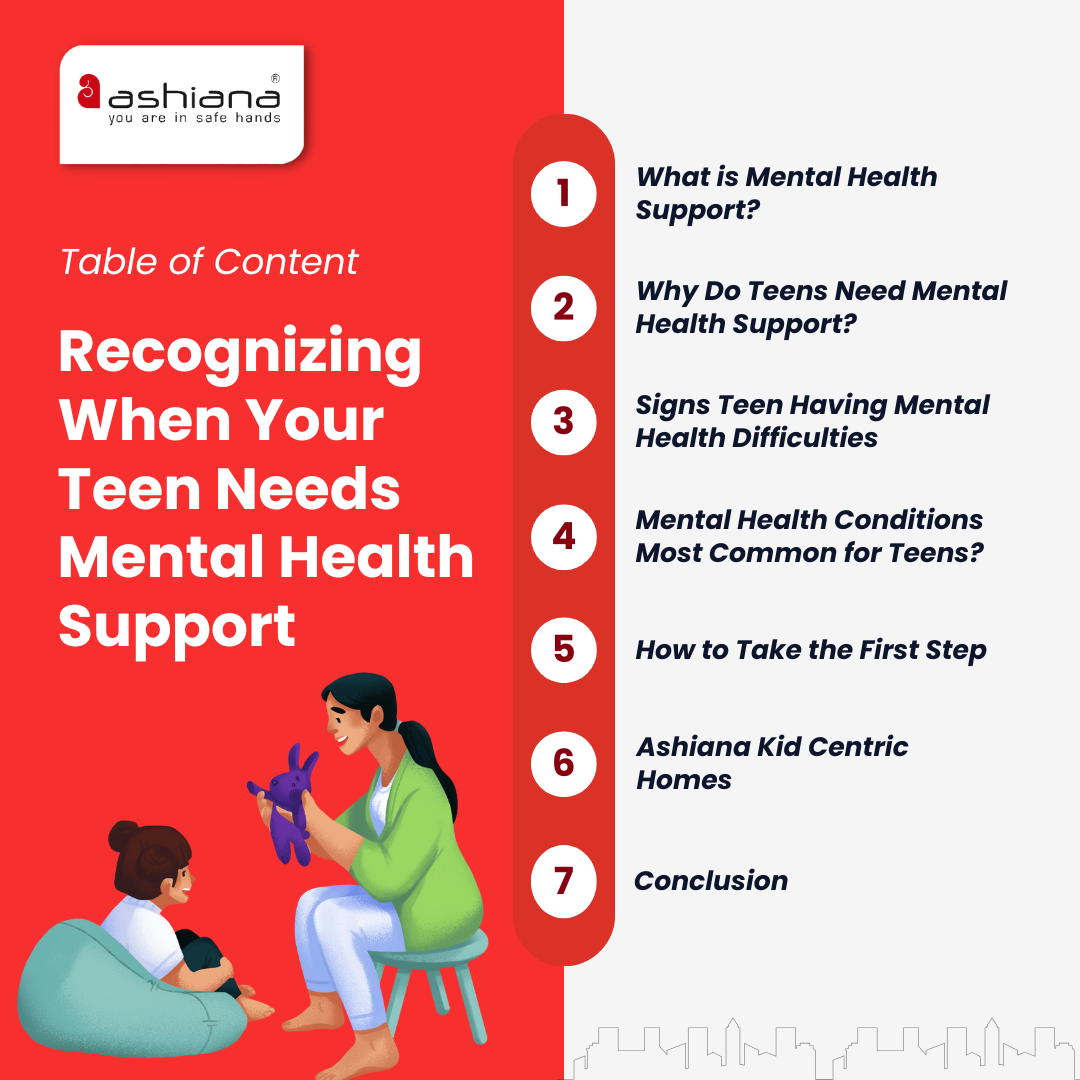

Warning signs include persistent sadness, irritability, withdrawal from social activities, decline in academic performance, physical complaints without medical cause, risky behaviors, and significant changes in eating or sleeping patterns.
Ashiana Kid Centric Homes provide a nurturing environment with structured activities, expert-supervised programs, and peer interaction opportunities designed to support children’s emotional, mental, and physical development.
Seek professional help if your teen exhibits consistent signs of distress, such as ongoing mood changes, withdrawal, or risky behaviors, and these issues persist over time or interfere with their daily life.
Ashiana, Ashiana Housing build homes. Homes surrounded by vast green spaces and fresh breeze. Homes cocooned in secured gated complexes. Homes where futures are forged and there are opportunities to grow. And Homes in environments brimming with healthy activity, trust and respect. At heart, we build communities with care.
Other posts by Ashiana
Join 1000+ of fellow readers. Get expert real estate knowledge straight to your inbox absolutely free. Just enter your email address below.